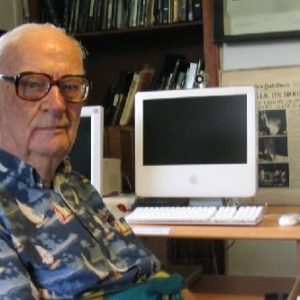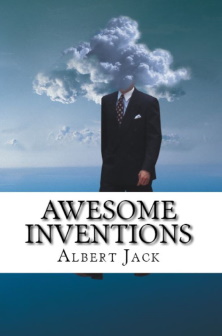Ecommerce – The World at Your Fingertips
In 1974, ten years before home computing made the transition from science fiction to reality, Arthur C. Clarke (1917-2008) was interviewed by Australia’s ABC Network and asked how computers, which at that time were large enough to be housed in computer rooms that were around the size of a basketball court, would change the future for the everyday person.
The author replied with an accurate description of what we today recognize as online shopping and banking.
Responding to a question about how life might be for the interviewer’s son Clarke responded, ‘he will have, in his own house, a computer terminal through which he will be able to talk and access any information he needs for his everyday life.
Like his bank statements, his theater reservations and anything else required in the course of living in a complex modern society. And this will be in compact form in his own home, which he will take for granted as much as we do the telephone.’
For many, in 1974, the idea that everybody will be able to carry around, in their pocket, information about anything that has ever happened, throughout history, and be able to access anything of current value, would be far too hard to imagine.
Remember, in 1974 the Encyclopedia Britannica was made up of over twenty volumes that would be hard enough to transport around in a small van.
And even they only scratched the surface in terms of information. It would take people of vision to change our established way of doing things and yet sometimes even the most imaginative can be embarrassed by their own limitations.
For example, in 1966 the esteemed Time Magazine insisted that remote shopping would flop because ‘women like to be able to get out of the house, to be able to handle the merchandise and be able to change their minds.’
In 1986 American technical author Clifford Stoll was working as a system’s administrator at the Lawrence Berkley National Laboratory in California when he identified an intrusion by the hacker, Marcus Hess. At that time computer networks were in their infancy and very little was known about intrusion.
It is now known that even military networks gave so little attention to their security in those early days that often the default passwords remained unchanged and users were able to log on to many networks by simply typing in the word ‘guest.’
Stoll, however, was one day given the relatively minor task of finding a seventy-five cent discrepancy on the Lawrence Berkley network and he quickly realized that an unauthorized user had logged into the system for nine seconds and not paid for it.
Unsurprisingly recovering less than a dollar was not the motive Stoll had for tracking down the culprit. Instead he was keener to discover how somebody unknown had gained access to a private network, and why.
A ten month investigation led to a honey trap and, for the first time in history, international law enforcement agencies worked together in order to trace the villain and make an arrest.
Markus Hess, who later confessed to working for the Soviet KGB became the first person to be jailed as a result of a digital forensic investigation.
Clifford Stoll wrote a book about his hunt for the hacker called The Cuckoo’s Egg: Tracking a Spy Through the Maze of Computer Espionage and later contributed to many publications on the subject of online security.
Stoll however, has not always been as successful in identifying internet trends and patterns.
On February 27 1995 he wrote on the subject of growing online communities and noted, ‘visionaries see a future of telecommuting workers, interactive libraries and multimedia classrooms.
They speak of electronic town meetings and virtual communities. Commerce and business will shift from offices and malls to networks and modems.
And the freedom of digital networks will make government more democratic? That’s baloney,’ he continued. ‘Do our computer pundits lack all common sense?
The truth is no online database will replace your daily newspaper, no CD-ROM can take the place of a competent teacher and no computer network will change the way government works.’
And he wasn’t finished. ‘Try reading a book on disc. At best it’s an unpleasant chore: the myopic glow of a clunky computer replaces the friendly pages of a book. And you can’t take that laptop to the beach. And yet Nicholas Negroponte, director of the MIT media Lab, predicts that we’ll soon buy books and newspapers straight over the internet. Uh… sure!’
This was all in the same year as internet giants Amazon and eBay were formed and still Clifford Stoll had more to say on the matter. ‘So how come,’ he continued, ‘my local mall does more business in a single afternoon that the entire internet handles in a month? Even if there were a trustworthy way to send money over the internet, which there isn’t, the network is missing the most essential ingredient of capitalism – salespeople.’
To be fair to Clifford Stoll this was still four years before any reliable and trustworthy way of sending money over the internet had been developed and the general public were still a long way from feeling confident about feeding their credit card information into the unknown.
Clifford Stoll rounded up his article with the observation that, ‘while the internet beckons brightly, seductively flashing an icon of knowledge as power, this non-place lures us to surrender our time on earth.
A poor substitute it is, this virtual reality where frustration is legion and where, in the holy names of education and progress, important aspect of human interactions are relentlessly devalued.’
Well, he was right about that part at least but the rest of Stoll’s summery of Ecommerce has proved to be inaccurate to the tune of over one trillion dollars every year. And this is only the beginning.
However, in fairness to Clifford Stoll it must be conceded that very few people could have foreseen the impact Ecommerce would have had upon the buying habits of just about every person in the western world.
Especially considering it at a time when very few people had even heard of the internet, let alone connected to it after unplugging their telephones and using the lead for dial up access. (It all seems so long ago now doesn’t it?)
Stoll, to his credit, can laugh at his previous observations and once noted, when reminded of his Newsweek article, ‘Of my many mistakes, flubs and howlers, few have been as public as my 1995 howler.
Now, whenever I think I know what’s happening, I temper my thoughts. Might be wrong Cliff…’ – Albert Jack
Albert Jack AUDIOBOOKS available for download here


